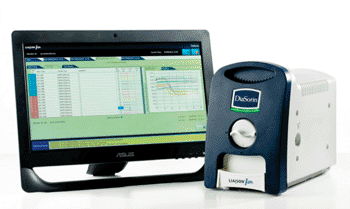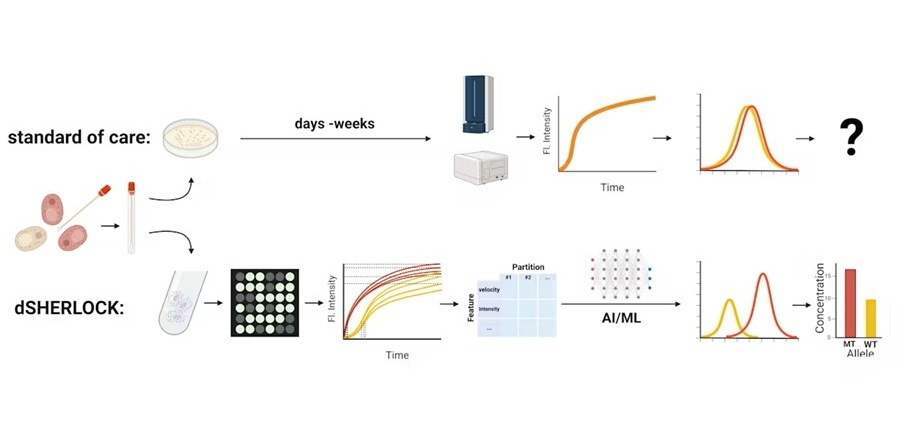New Molecular Diagnostic Test Detects Parvovirus B19
By LabMedica International staff writers
Posted on 15 Jul 2013
A new molecular diagnostic test for the detection of Human parvovirus B19 on plasma and serum samples is available in markets outside of the United States and Canada. When used together with serological testing, the test will greatly enhance the clinical management of Human parvovirus B19—a potentially life threatening virus.Posted on 15 Jul 2013
The new Iam Parvo molecular assay is the third test used on the LIAISON IAM after the first two assays already launched in late 2012 (IAM BKV and IAM VZV). The molecular diagnostic test is of primary importance because, while the serological tests in immunodiagnostics are normally used for the initial diagnosis in immunocompetent individuals (i.e., with healthy immune systems), the molecular methods are needed for immunocompromised patients and are recommended to confirm Immunoglobulin M (IgM) anti-Parvovirus positive results.

Image: DiaSorin has launched the unique, highly sensitive Iam Parvo assay, a rapid quantitative molecular assay for use on the Liaison Iam instrument (Photo courtesy of DiaSorin).
A common childhood infection, B19V causes particular concern in the case of suspicion of infection in a pregnant woman; from as early as 6 weeks gestation, B19V can be transferred from mother to fetus across the placenta, causing hydrops fetalis, miscarriage, severe neurological disease, or poor survival of the fetus.
The presence of IgG antibodies to B19V indicates a previous infection, but it is estimated that approximately 25% to 45% of women of childbearing age do not possess these antibodies and are therefore susceptible to infection. First line serology testing will indicate current active B19V infection; however, when serological test results are negative but infection is still suspected, clinicians can rapidly confirm diagnosis using the new, highly sensitive, IAM PARVO molecular assay on the LIAISON IAM, designed by DiaSorin (Stillwater, MI, USA) to be highly sensitive and therefore able to provide confirmation data in certain and rapid manner.
Monitoring of the Human parvovirus B19 is also important in immunocompromised patients or those with sickle cell anemia, as it can have very serious effects, sometimes fatal and is the leading cause of pure red cell aplasia in AIDS patients. With the aim of simplifying and speeding up the process of diagnosis, DiaSorin has optimized the extraction of nucleic acids of Parvo B19 on its instrument DiaSorin LIAISON IXT. The amplification and signal detection step of the IAM PARVO assay utilizes the company's proprietary Q-LAMP technology on the LIAISON IAM platform.
Related Links:
DiaSorin













